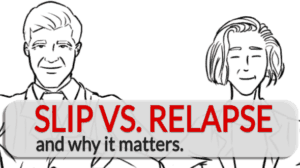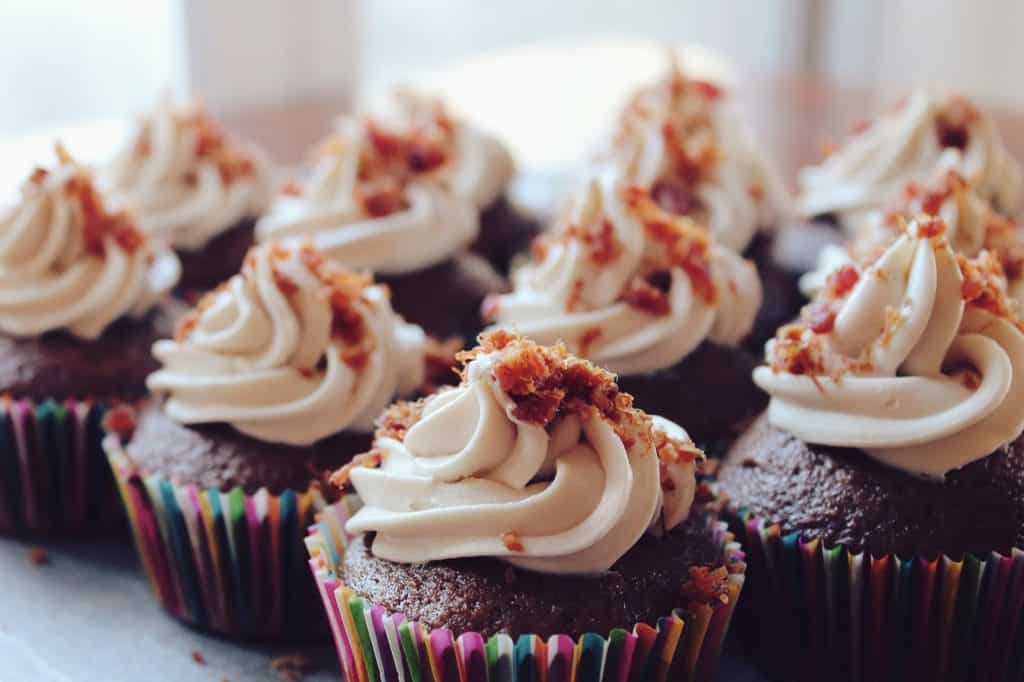Do all addicts relapse? The quick answer is “no.” But that doesn’t come close to answering a question with so many variables.
The better question…
What happens if…or when…your loved one in recovery relapses?
Let’s start with what qualifies as a “relapse.”
Using a wide angle lens, someone in recovery has relapsed when they engage in behavior that previously led to the acting out… engaging in the addictive behavior. If you’ve been living with an addict and are witnessing their recovery, you are well aware of some of the warning signs that a relapse is on the horizon:
- Staying up late (sleep is critical for emotional regulation)
- Socializing with unhealthy friends (peer pressure is not to be taken lightly at any age)
- Escalating a “less” damaging behavior (this is referred to as cross addiction)
How do you know if they’ve relapsed? It’s helpful to differentiate between a slip and a relapse.
 Slip vs. Relapse for An Addict
Slip vs. Relapse for An Addict
A slip is a one or two time event. The addict has engaged in old behavior patterns that are dysfunctional and harmful. But, before things got out of control, they were able to arrest it. To stop it quickly.
As opposed to a relapse…
If the person was a binge drinker, for example, they might go on a three or four day bender. Some unpleasant experience typically sets this off and they are in full relapse. The shame and disappoint they feel compounds the problem. They’re back into their addictive world.
This is a very dangerous situation, particularly, if you’re an opiate (think Heroin) or meth addict. If the addict has been sober for a while, their tolerance has decreased dramatically. They will want to ensure that the “high” they remember is guaranteed and may use the same amount of the drug they used prior to finding recovery.
This can end badly…it’s when unintentional overdoses happen. The body has done some healing and when the addictive behavior or substance is introduced again, it’s not able to tolerate the same amount of the drug.
For this and many other reasons, relapse can be deadly. If not deadly, very dangerous.
Relapse and Recovery in Addiction
While relapses or slips are common in recovery, it’s interesting to look at the research. It isn’t 100% reliable because it’s hard to pin people in recovery down to get the truth about their recovery journey. We’ll keep this in mind…but even if we’re off a few percentage points the conclusion is undeniable.
It’s estimated that approximately 30% of people that find their way to recovery never slip or relapse. If you’ve been exposed to the world of addiction, you know that this number seems pretty high.
For many, though, once the decision is made to stop the addictive behavior that has caused life to start spiraling out of control…it’s done. The “aha” moment, what we refer to as an intervention, was so profound that the old behavior just doesn’t hold any allure.
Now, let’s consider the other 70%. The 70% that admits to relapsing…often repeatedly.
Slips and relapses are not part of recovery. They’re signs of addiction.
Since addiction is fueled by shame, and even slips are often met with shame, heaping on a big helping of shame only makes it easy to see how matters worse. How can the shame spiral be avoided? First by accepting that slips and even relapses are part of the recovery journey for most addicts. They can be considered normal addiction-related behaviors.
If you’re not an addict, calling addictive behavior “normal” defies logic. Let’s use an example you may be able to relate to.
Thinking of any habit that you are trying to quit can prove insightful.
Let’s say that you are trying to quit chewing gum. Charlie loves Chewing Gum. Here’s his gum chewing example:
If I really wanted or needed to Stop Chewing Gum, I would get rid of all the gum I have (unless I’m trying to moderate which is a subject for another day).
Then I’m at a restaurant where they give me a piece of bubble gum with the bill. I love bubble gum.
There I am…with a quandary. I’ll just have a piece of bubble gum. No big deal, right?
That was a slip if I was trying to quit chewing bubble gum. I realized, “Oh, that was nice. Now I’ve got to get back on track.”
Why did I “take the bait?” It was too tempting. It required more resolve than I had prepared myself for.
In the future, if I went to that restaurant and I knew that I was vulnerable, I would say, “Please, don’t give me any bubble gum. I don’t want to be tempted. I’m still weak in that area.”
Or, I wouldn’t go to that restaurant. It’s not a safe place for me.
 Food…especially sugar…is another example that most of us can relate to. Dr. Gala shares her own experience with sugar. Who doesn’t like cupcakes?
Food…especially sugar…is another example that most of us can relate to. Dr. Gala shares her own experience with sugar. Who doesn’t like cupcakes?
If somebody put a chocolate cupcake in front of me. I would be toast.
Even though I am sensitive to gluten and know sugar isn’t good for me, cupcakes are just too tempting. And, I might justify enjoying one since they’re pretty small. How much damage could it really cause?
Fortunately, I don’t go on a “cupcake binge.” But, I will definitely suffer (even if only slightly) from the effects of the sugar and gluten.
Still…I love cupcakes and accept that there are times that I may have a cupcake slip.
Slips and relapses are part of the healing process. And, as a recovery stakeholder, they are something we must learn to deal with since we’re reluctantly linked to the addictive world.
The key in dealing with them is, first and foremost, to have prepared in advance. What are you going to do in the event that your loved one slips or relapses? Don’t be caught by surprise…or expect that your loved one is going to be perfect in their recovery.
They may end up in that 30% that never slip or relapse. But, it’s more likely that they’re going to be in the 70% that do.
What are YOU going to do? Have you thought through the consequences that will accompany the slip or relapse. And, you will likely need different consequences for a slip vs. a relapse.
If it’s full relapse, that will likely mean that they have engaged repeatedly in their addictive behavior and need an escalated level of care or recovery monitoring. A slip may be managed with some additional support to get recovery back on track.
We suggest that you have the discussion with the addict in recovery before the slip or relapse happens. There should be a clear understanding between you.
 What are YOU going to do in the event of a slip or a relapse with the addict in your life?
What are YOU going to do in the event of a slip or a relapse with the addict in your life?
If you’ve hit your own point of no return, there’s no more negotiating. This is the end. If relapse happens you may not be able to continue in the relationship. Have you explored what that would mean for you?
What are you going to do? Where are you going to go…short-term and longer-term? Who are you going to contact?
In other words, don’t take the approach, “We’ll cross that bridge when we come to it.” Assuming it’s never going to happen doesn’t make sense when you know that there’s a 70% chance it will.
Appropriate action is taken based on thoughtful consequences. You can’t expect to arrive at thoughtful consequences when you’re thrust back into the insanity that spills over into your life as the addictive behavior resumes control.
You need to think it through and have a mental plan ready to implement if the time comes. If the worst happens, it will be a shock to your system but it will relieve the stress and anxiety if you can begin taking appropriate action immediately. And, with a plan prepared in advance, you won’t be as likely to overreact.

 Slip vs. Relapse for An Addict
Slip vs. Relapse for An Addict Food…especially sugar…is another example that most of us can relate to. Dr. Gala shares her own experience with sugar. Who doesn’t like cupcakes?
Food…especially sugar…is another example that most of us can relate to. Dr. Gala shares her own experience with sugar. Who doesn’t like cupcakes? What are YOU going to do in the event of a slip or a relapse with the addict in your life?
What are YOU going to do in the event of a slip or a relapse with the addict in your life?